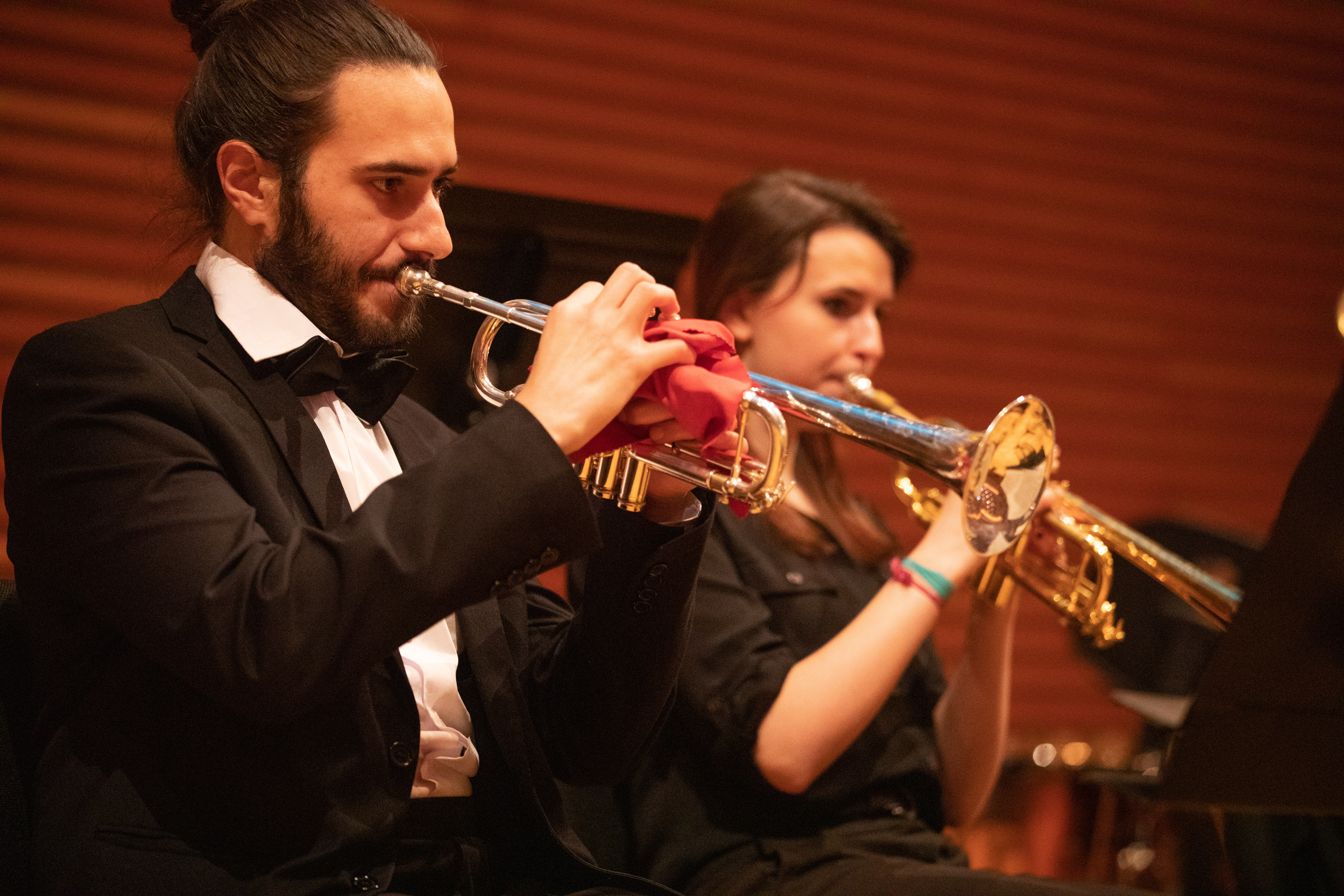As former D.M.A. student Dillon Henry notes, “To work with a faculty with such diverse backgrounds and writing styles, who have earned so many accolades in the field, who still care so deeply about their students...that's really special, and you don't get that everywhere.” M.M. student Aaron Ricucci-Hill agrees, adding, “The composition program at UMKC has opened many doors for me and exposed me to techniques and ideas I never even dreamed were possible. The professors act as guides for the student and I feel that allows me to be truly myself."

UMKC’s Composition program is one of the leading programs in North America, with 50-60 majors (freshman through doctoral). Our faculty have received Fromm Foundation and Koussevitzky Commissions (Chen Yi, Zhou Long, Yotam Haber); a Charles Ives Living Award (Chen Yi); membership in the American Academy of Arts and Sciences, and the American Academy of Arts and Letters (Chen Yi); Rome Prize Fellowship (Paul Rudy, Haber); Guggenheim Fellowship (Haber, Rudy, Chen, Zhou); Azrieli Commission for Jewish Music Prize (Haber); Bourges Prize and ems Prize (Rudy); BBC Masterprize and 2011 Pulitzer Prize in Music (Zhou Long). Our students and graduates have also won teaching positions, awards and commissions, including:
They are very active in all areas of composition, including teaching, serving as composer-in-residence for orchestras, freelancing, film and other commercial work.
Performance, mentoring and other opportunities in our program
Curricular highlights
Extracurricular
Support
Bachelor of Music: Music Composition
With a Bachelor of Music in Music Theory, you'll be able to explore the study of musical structures through experiences in applied music, ensembles and music history. After completing the four-semester musicianship sequence, you can then select upper-level courses in analysis, counterpoint, contemporary technique and special topics. For your capstone experience, you'll research and complete a senior thesis while working with a tenure-track member of the music theory faculty.
The Master of Music in Music Theory is ideal as a second degree for performers, conductors and composers due to its emphasis on practical music-making. It also lays the groundwork for students preparing for Ph.D. work in music theory. You'll also complete a supervised thesis on a music-theoretic topic of interest to prepare for future employment or further study.
You'll have the opportunity to work with research faculty who hold vibrant interests in such areas as Schenkerian analysis, temporality in music, nineteenth-century analysis, post-tonal analysis and composition, pedagogy, Ives and popular music. Our faculty has published in such noted journals as Music Theory Spectrum, Music Theory Online, Indiana Theory Review, American Music, College Music Symposium and Current Musicology.
Studying Musicology at the Conservatory will allow you to dive deep into the history of music in a performance-centered environment. You'll study the history of music through a wide range of courses, including survey classes in individual musical eras and seminars on topics such as Music and the Supernatural, Film Music, Musical Theatre, Gender and Music, Operatic Performance, Jazz, Popular Music, Chamber Music, and Minimalism. You'll be guided through these courses by leading scholars in the field.
You'll also engage in research that uses the rich variety of archival resources in Kansas City. In the past, students and faculty have partnered with the LaBudde Special Collections and the Marr Sound Archives at UMKC; the Linda Hall Library of Science, Engineering and Technology; the American Jazz Museum; the National World War I Museum and Archives at Liberty Memorial; Conception Abbey; The Nelson-Atkins Museum of Art; and the Harry S. Truman Library and Museum. Graduate students have presented the results of their research in many professional forums, including the programs of the American Musicological Society, Society for American Music, College Music Society, and Society for Minimalist Music, among others.
The musicology program at the UMKC Conservatory also focuses on pedagogical training. You'll work with recognized scholars of music history pedagogy through dedicated coursework, independent studies, individual research topics, and guided teaching opportunities.
Our faculty members have published articles in American Music, Choral Journal, The Cambridge Opera Journal, The Hymn, Journal of the Society for American Music, Music and the Moving Image, Musical Quarterly, Opera Quarterly, the Journal of Popular Music Studies, Jazz & Culture, and other prestigious journals. They have authored and contributed to books with Cambridge University Press, Oxford University Press, University of Michigan Press, Routledge, Brepols Press, Roman and Littlefield, Palgrave, the University of Illinois Press, and the University of Rochester Press and have held offices in the American Musicological Society, the Society for Minimalist Music, the International Association for the Study of Popular Music (US), the North American British Music Studies Association, and the Society for American Music.